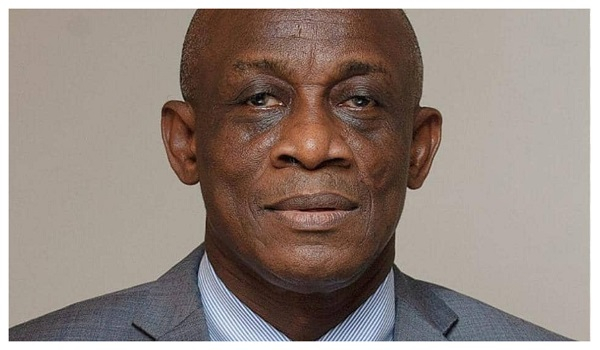Nigeria Insecurity: Tinubu, Sultan, and the Army's Stand
Connecting a few similar but unconnected images in our national discourses is sometimes necessary, and this is what I am doing in this piece.
This one is to help provide the other view to the view of those who forever demarket Nigeria over insecurity. The images I am connecting here include those of President Bola Tinubu, Alhaji Sa’ad Abubakar III, the Sultan of Sokoto and head of all Muslims in Nigeria, as well as the Nigerian Army.
Recently, the President spoke at an event addressing the challenge of insecurity. Weeks later, the Nigerian Army had something to say regarding the same matter. The intervention of Sultan Sa’ad, however, dates farther back, stretching into the era of the immediate past administration.
However, for clarity in presentation, I start with the Nigerian Army.
During a recent briefing, the Director of Defence Media Operations, Major General Marcus Kangi, said the majority of violent attacks in farming communities in Plateau and Benue States were carried out by foreign herders who were distinguishable by their accents.
He added, however, that some Nigerians collaborated with such foreigners. Having written consistently about insecurity since 2012, this wasn’t news to me. The awareness that foreigners were involved informed the tone of my intervention over the years.
It made me explain that the demonisation of a whole ethnic group for offences a few elements committed wasn’t right, and routine attribution of attacks to “suspected Fulani herders” won’t allow for a proper diagnosis of the problem.
What the Army said isn’t news to me because people of Fulani origin, the town Fulani, tell stories of how they, too, have become displaced persons outside their own states due to insecurity.
A Fulani who has farms tells how they have running battles with herders, and how their crops are destroyed on farms by people they know to be foreign cattle herders. One won’t find such details in popular narratives on armed attacks, though; instead, all crimes are simply attributed to “suspected Fulani herders”.
It happens where journalism has been reduced to using one’s platforms to promote a preferred side in a serious national dilemma. But there are those of us who choose to stay off such pettiness, including journalists who have bothered to leave the comfort of their offices to talk to locals in troubled locations in the south, north-central, or far north.
For over a decade, I’ve concluded that the intelligence community knows certain dynamics in this crisis than they say publicly. Of course, they must have been briefing presidents, past and present, regarding what they knew. Meanwhile, weeks before the Army addressed the public concerning invasion by foreign herders, some religious leaders visited the President.
They expressed their concerns about what they categorised as the killing of Christians, alluding to an orchestrated plan. The President made efforts to explain that there was no deliberate plan by the government to discriminate against members of any religion.
He said he wasn’t a religious bigot and wouldn’t watch members of one religion get unfairly treated. He attributed what was happening to the general national security challenge.
It’s public knowledge that members of other religions, too, are victims of the state of insecurity. As such, I have no problem with concerns that are expressed about the well-being of any segment of the population.
Demarketing Nigeria to foreigners (e.g. the US Congress) and demonising innocent Nigerians for the criminality of a few is what I’ve always expressed views against. No one should demarket Nigeria for any reason.
If we have issues, let’s put heads together and resolve them. But some have publicly said they don’t believe in the Nigerian government, and that foreigners should come to resolve an internal challenge. When such elements are ready to listen to the absurdity in what they say, then they will be ready to find a lasting solution.
Moreover, I’ve always stated that if we diagnosed a problem wrongly, the solution proffered would be wrong. We can’t call what is red white, tagging insecurity situation that all Nigerians suffer from “ethnic cleansing”, “genocide”, “religious persecution” when it comes to a specific segment of people.
There’s obvious confusion in this kind of categorisation, and I wonder if those making them ever pause to ponder what they’re saying. Surely, reasonable foreign governments that hear such claims must have asked themselves: Which are we to believe – ethnic cleansing, genocide, religious persecution?
These categorisations are not the same, and there can’t be one solution to all of them. There is so much mix-up, too much emotional turmoil that the negative fallouts of insecurity have generated. My interventions are always about the need to identify the problem to proffer the right solutions.
That time, the President explained to his guests that nothing he knew backed the claim of ethnic cleansing, genocide, or religious persecution. I suppose he was talking based on the intelligence report that the army and other agencies brought to his table.
Days back, the Chief of Defence Staff, Gen. Christopher Musa, said there was a need to erect barriers at the porous international border to keep out criminal foreigners, a further confirmation of what Kangi said earlier.
But did I believe the President’s submission to his guests? Actually, he confirmed what I have always known as a journalist who has lived in all three geopolitical zones in the north. I had also visited remote parts, where I talked to people in Muslim and Christian communities.
The army’s position is somewhere in-between the President and the sultan, affirming the views of the political and religious leaders, respectively. I had discussed several times on this page some of Sultan Sa’ad’s interventions regarding insecurity.
Like I stated in the past, I’ve not seen a sultan who’s committed to uniting our peoples across religious and ethnic lines like Sultan Sa’ad. Whoever still has in them the capacity to hate fellow humans, in spite of the religion they say they have, may choose not to like the sultan.
But where the issue of ensuring the peaceful coexistence of all Nigerians is concerned, Sultan Sa’ad has cooperated with other religious leaders. I recall an interfaith meeting he and Christian leaders had years ago under the immediate past administration. Everyone gave their speech, complaining about the killing of Christians, alleging there was a grand plan behind it.
The sultan stood up to give his speech. He expressed his disappointment that he and other Muslim leaders were being addressed as though they encouraged any criminality perpetrated by herdsmen. He said he didn’t know of any grand plan to kill Christians.
He said anyone caught perpetrating a crime should be arrested and prosecuted, rather than have a situation where all members of their ethnic group were accused of what they knew nothing about.
It wasn’t only in this setting that he condemned the violent attacks. Less than two years ago, a group of people of Fulani origin had an event to which they invited the sultan. Some of the things Sultan Sa’ad said publicly to people of his own ethnic group surprised me, and I treated it on this page at the time.
Not many Fulani leaders would have said openly what he said. He expressed his concerns that all Fulani people were being seen in the manner they were seen due to the actions of some herders. He said that was not right, and it should not continue.
He said he planned to hold a closed-door meeting with members of the group that invited him to the event to find a lasting solution.
I imagine that from that meeting and his consultations with other Fulani leaders in other settings, Sultan Sa’ad knew foreign herders were mostly responsible for some of the situations Nigerian Fulani herders were accused of. Journalists with an investigative bent know this.
Locals tell us. They tell us about the Fulfulde, which is not the Nigerian variant. They tell us about the direction herdsmen, or those who carried out attacks, come from, which is beyond our international border.
They tell us about attacks even on local Fulani farmers, their crops on farmlands, and their cattle that are rustled. With what the President, the sultan, and the Army know the problem to be, one hopes the appropriate lasting solutions will be adopted by stakeholders soonest.










